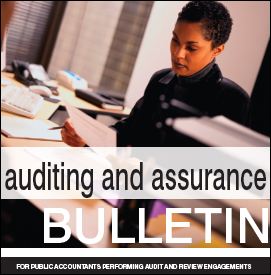This Bulletin was issued in response to certain matters identified by practice inspectors and questions received by provincial practice advisors. In particular, this Bulletin addresses how to apply professional skepticism in accordance with CASs. It notes that: “CASs define professional skepticism as an attitude that includes a questioning mind, being alert to conditions that may indicate possible misstatement due to error or fraud, and a critical assessment of audit evidence (paragraph 13(I) of CAS 200).”
The Bulletin further states that: “Paragraph A19 of CAS 200, Overall Objectives of the Independent Auditor and the Conduct of an Audit in Accordance with Canadian Auditing Standards, calls for the auditor to plan and perform the audit with professional skepticism in order to reduce the risks of:
- overlooking unusual circumstances;
- over generalizing when drawing conclusions from audit observations; and
- using inappropriate assumptions in determining the nature, timing and extent of the audit procedures and evaluating the results thereof.”
The topics covered by the Bulletin include the following: Overall auditor alertness; Risk assessment; Related parties; Accounting estimates; Inquiries of others; Accounting policies; External confirmations; Analytical procedures; Testing of journal entries; Evaluation of misstatements; Written representations; and Forming an opinion. After discussing these matters, it concludes that: “Auditors are encouraged to consider the matters discussed in this Bulletin, and continue to improve the application of professional skepticism in the audits they perform.”
For additional insight on professional skepticism, refer to Professional Judgment – Education Continued and the three-part series on Learning about Professional Skepticism (November 23, November 29 and November 30, 2011).
